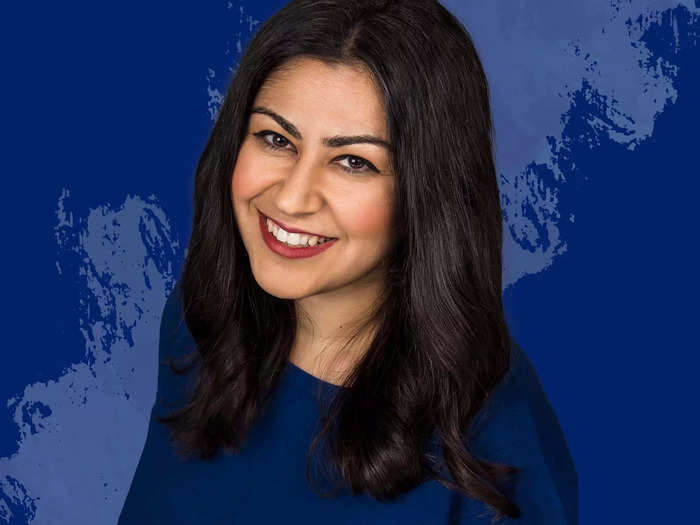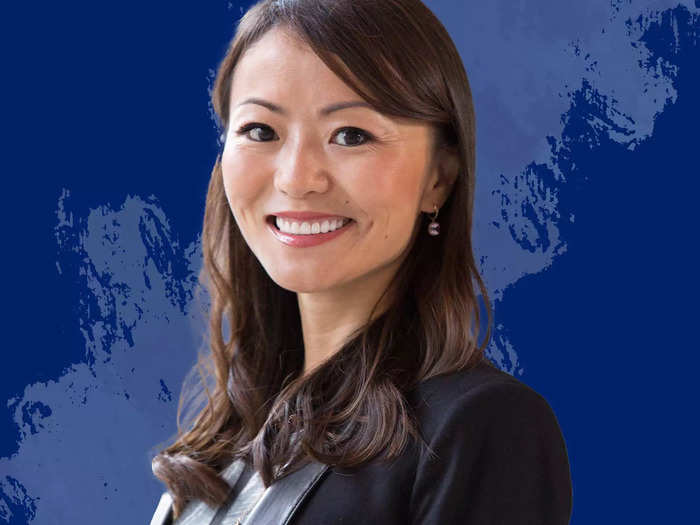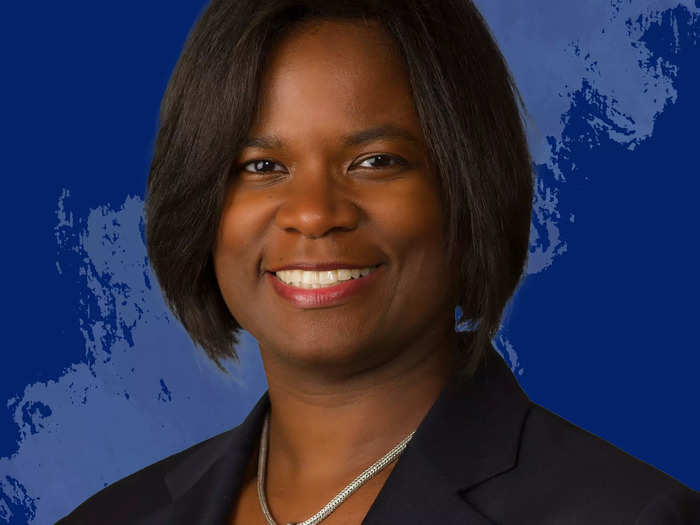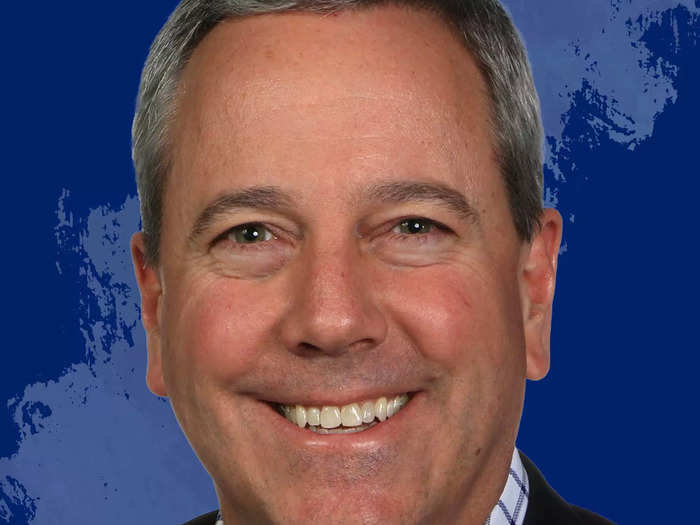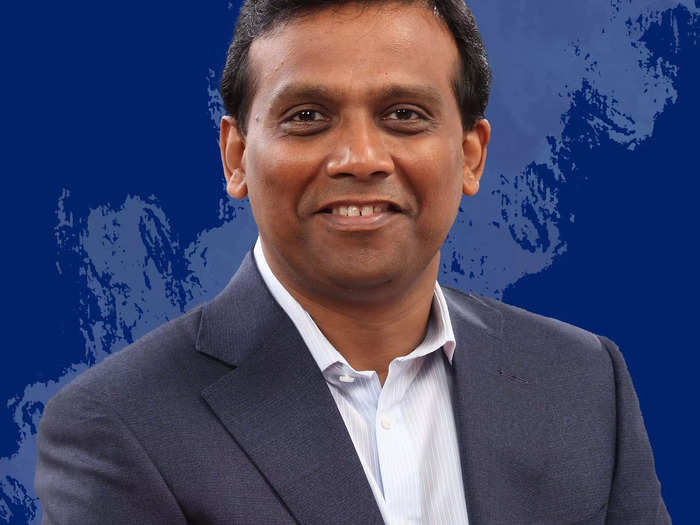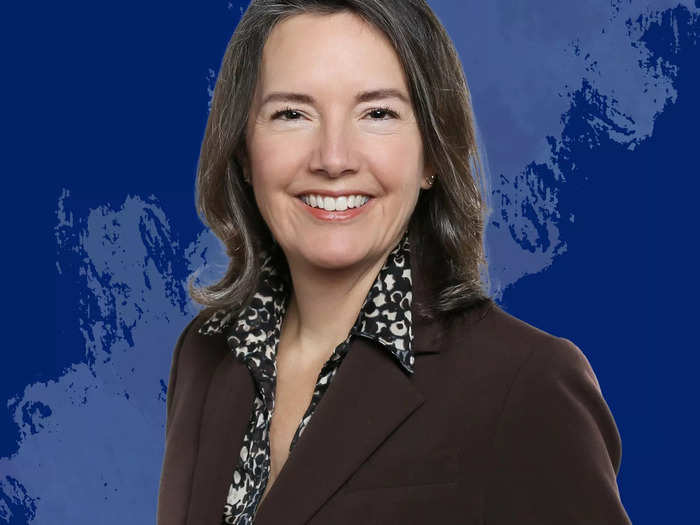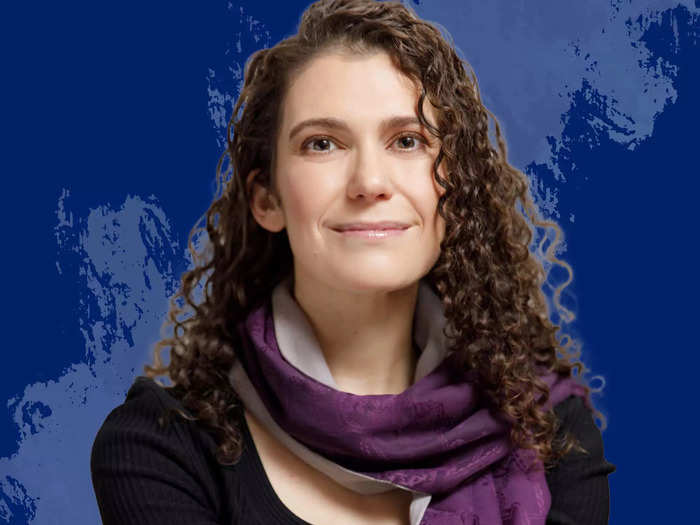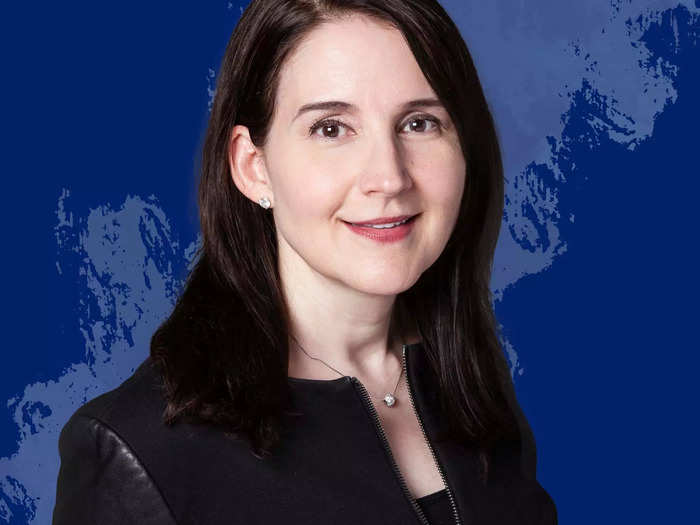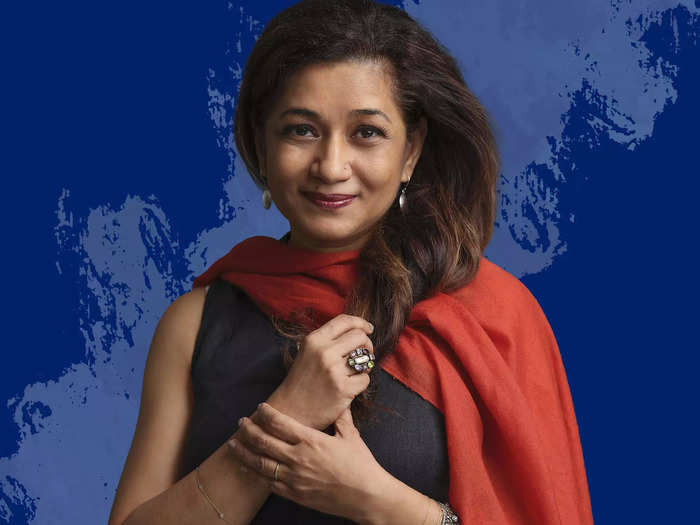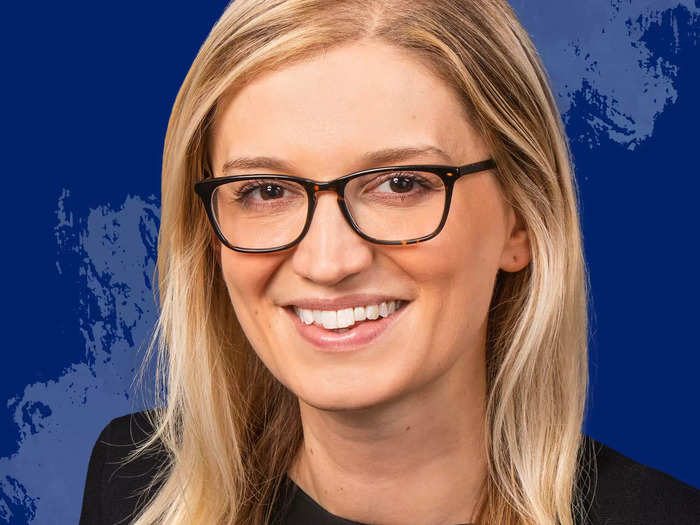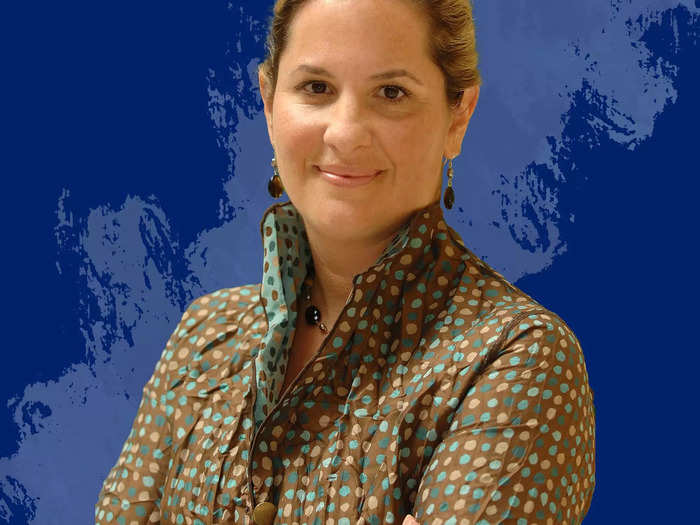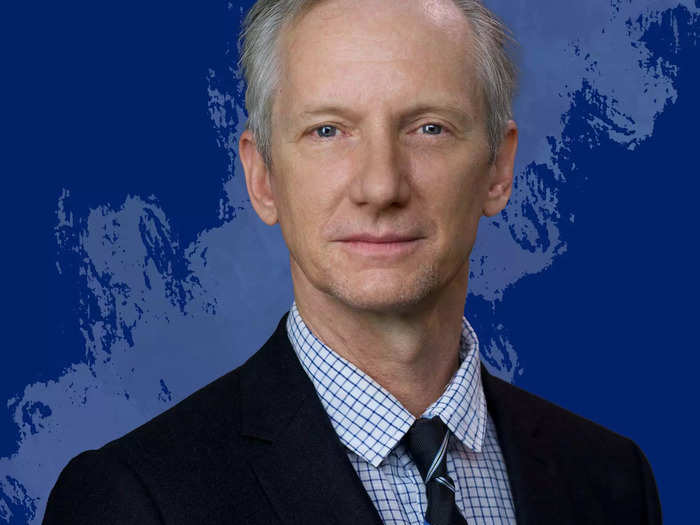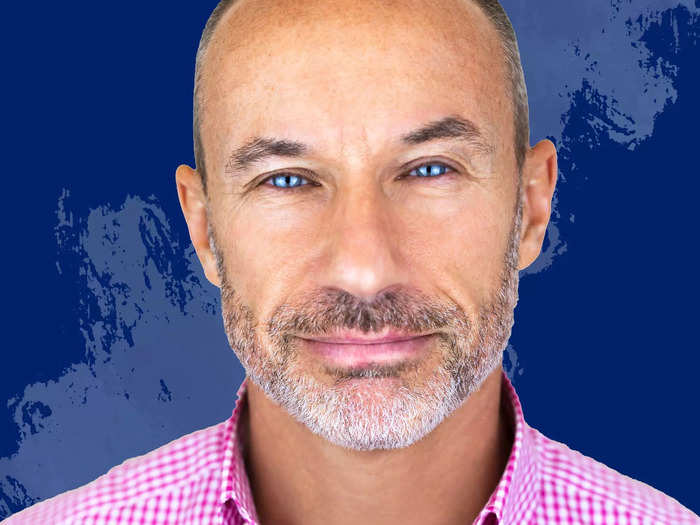Bianca Bagnarelli for Insider
This article is part of the "Financing a Sustainable Future" series exploring how companies take steps to set and fund sustainable goals.
Explore the power of sustainable finance
Insider, in partnership with Bank of America, is launching the Financing a Sustainable Future editorial series to help business leaders and their stakeholders — including employees, customers, shareholders, and board members — understand the opportunities and uncertainties that come with this secular change to the capital markets.
Over the course of the next five months, Insider's reporting will bring to life the people, organizations, and coalitions that are driving progress.
While much of the focus of conversations around sustainable finance is on the climate crisis, Insider is taking a holistic approach, with content dedicated to each of the four pillars of stakeholder capitalism as defined by the World Economic Forum.
- People: Reflects a company's equity and its treatment of employees. Metrics include diversity reporting, wage gaps, and health and safety.
- Planet: Reflects a company's dependencies and effects on the natural environment. Metrics include greenhouse-gas emissions, land protection, and water use.
- Prosperity: Reflects how a company affects the financial well-being of its community. Metrics include employment and wealth generation, taxes paid, and research and development expenses.
- Principles of Governance: Reflects a company's purpose, strategy, and accountability. Metrics include criteria measuring risk and ethical behavior.
A pivotal phase in sustainable finance
The series is incredibly timely. A key moment in the world of sustainable finance occurred during the United Nations Climate Change Conference (otherwise known as COP26), in Glasgow, Scotland, during the first two weeks of November 2021.
A consortium of some 450 banks, insurance companies, and asset managers from 45 countries called Glasgow Financial Alliance for Net Zero (GFANZ), which had launched the previous April, announced that it had committed $130 trillion in assets to transform "the economy for net zero."
"The architecture of the global financial system has been transformed to deliver net zero," Mark Carney, the coalition's leader and a former head of the Bank of England, said in a statement. "We now have the essential plumbing in place to move climate change from the fringes to the forefront of finance so that every financial decision takes climate change into account."
GFANZ has its detractors, with one criticism being that the coalition has made no mention of divesting from fossil fuels. Regardless, the sustainable-finance juggernaut is already in motion and is becoming an increasingly important consideration for companies looking to raise capital.
To extend Carney's plumbing analogy, imagine a reservoir of $130 trillion in financial capital that's ready to be piped in the form of lower-cost borrowing into companies that meet sustainability goals.
In order to tap the benefits of this lower-cost liquidity, companies have to demonstrate their sustainability credentials. That's where another abbreviation comes in: ESG, which stands for environmental, social, and governance. Companies are adapting ESG standards to signal to investors and financial institutions alike that they're attaching targets to sustainability statements and adopting a recognized facility for investors to monitor how they're doing.
Sustainable finance is bigger than just ESG, though the terms are often conflated. It's the new ecosystem that's emerging from the legacy investing and finance structures that have capitalized on companies for generations.
A lot of the finance conversation is focused on capitalizing big industries in transition. It's also about driving innovation from the ground up. The opportunities to fund renewable energy and electric industries, and to invest in emerging technology and climate solutions, are at a scale never seen before.
A community of experts to help us tell these stories
To help us with this ambitious project, we have convened the following advisory council to contribute thought leadership and insights into how their organizations are setting goals and driving toward measurable outcomes. We will also feature our council in a series of virtual events, with the first one taking place on March 8 on the topic of how investing in people transforms economies.
Advisory Council for 'Financing a Sustainable Future'
- Ezgi Barcenas, Chief Sustainability Officer, AB InBev
- Karen Fang, Managing Director, Global Head of Sustainable Finance, Bank of America
- Eunice Heath, Corporate Director for Sustainability, Dow
- Bob Holycross, Vice President, Sustainability, Environment, and Safety Engineering, Ford Motor Company
- Ravi Kumar, President, Infosys
- Kathleen McLaughlin, Chief Sustainability Officer, Walmart Inc. and President, Walmart Foundation
- Sophia Mendelsohn, Chief Sustainability Officer and Global Head of ESG, Cognizant
- Caroline Roan, Chief Sustainability Officer, Senior Vice President, Global Health and Social Impact, Pfizer
- Durreen Shahnaz, Founder and CEO, Impact Investment Exchange and Impact Investment Exchange Foundation
- Megan Starr, Global Head of Impact, Carlyle
- Jennifer Steinmann, Global Climate and Sustainability Marketplace Leader, Deloitte
- Evan van Hook, Chief Sustainability Officer, Honeywell
- Martin Whittaker, CEO, JUST Capital
Ezgi Barcenas, Chief Sustainability Officer, AB InBev
AB InBev; Edited by Kazi Awal/Insider
In February 2021, AB InBev announced a $10.1 billion revolving-credit facility tied to sustainability, including its goals to improve water efficiency, increase recycled content in packaging, and reduce greenhouse-gas emissions.
Ezgi Barcenas, who became the company's chief sustainability officer in August 2021, talked about how the changes occurring in finance enabled the company to consider taking this path.
"The recent rapid maturity of the sustainable finance market, in particular the sustainability-linked loan structure, combined with our need to refinance our revolving credit facility because of the upcoming maturity, were the conditions that presented an opportunity to put this in place," she said in an email.
Since joining the company in 2013 through the global MBA program, Barcenas has held key roles within the corporate affairs and procurement departments and most recently served as the global vice president of sustainability.
Barcenas advises companies setting sustainability goals to engage with business partners across procurement, logistics, operations, and corporate affairs. "This is what we've done back in 2017 to set our 2025 sustainability goals," she said. AB InBev announced in December 2021 that its goal is to achieve net zero by 2040, and that the finance team was involved in building the strategy and road map from the outset.
"This creates a shared sense of ownership right from the beginning," Barcenas said.
Karen Fang, Managing Director, Global Head of Sustainable Finance, Bank of America
Bank of America; Edited by Kazi Awal/Insider
In December 2021, Bank of America announced its second Equality Progress Sustainability Bond, for $2 Billion, with proceeds designed to advance racial equality, gender equality, economic opportunity, and environmental sustainability. The news followed the bank's November 2021 rollout of its framework for green, social, and sustainability bonds. Bank of America is also part of the GFANZ consortium.
It's all part of the bank's broader sustainability commitment, announced in April, 2021, to marshal $1.5 trillion by 2030 towards environmental and social goals.
"Our mission statement is to mobilize and scale," said Karen Fang, managing director, global head of sustainable finance at Bank of America, and member of the bank's ESG committee.
"If we issue our own racial-equality-themed social bond, we want others to follow," Fang said. "So we have to scale capital development through client engagement and through all the alliances we're in, whether it's the UN or World Economic Forum or the Prince of Wales' Sustainable Markets Initiative, we want to lead by example."
"We also want to follow other people's example. We want to be the first mover in some things, and we want to be learners and followers in other things," she added."
The reality is that a search for solutions to many of these critical problems is complex. Fang emphasizes that it's essential to be mindful of issues of fairness and the unintended consequences of environmental policies and plans that fail to consider negative outcomes to local populations around the world.
"You can't be binary on these issues," Fang said. "You have to think about societal issues and societal goals."
Eunice Heath, Corporate Director for Sustainability, Dow
Dow; Edited by Kazi Awal/Insider
As part of its 2025 Sustainability Goals, Dow talks about "valuing nature."
"The way we've considered nature in the decision-making across our global business, on the scale of our 2025 Sustainability Goals, has never been done before," the Dow website says. "These goals will create new value for Dow and for society, by helping companies understand and value the benefits that nature can provide to their bottom lines."
That ambition is tied to financial targets. "By 2025, Dow will deliver $1 billion in NPV [net present value] through business-driven projects that enhance nature."
Eunice Health, Dow's corporate director for sustainability, leads the coordinated planning and implementation of the 2025 sustainability goals, integration, and next-generation strategy development.
"I think it's important to be realistic when setting sustainability goals. Companies often commit to aggressive — even aspirational — goal setting but fall trap to the action-plan gap," Heath said via email. "Leaders need to consider the full life cycle of a target, decide what's actually achievable during the timeline and create a concrete plan of how to reach it."
Heath said Dow uses a range of tools to help it prioritize, "including a sustainability materiality assessment, a stakeholder engagement process, and our enterprise risk-management process," she said. "Through these assessments, we're able to map our sustainability goals against the topics and areas that are material for our company across economies, the environment, and society, as well as with our stakeholders."
Bob Holycross, Vice President, Sustainability, Environment and Safety Engineering, Ford Motor Company
Ford; Edited by Kazi Awal/Insider
Just as the 2021 United Nations Climate Change Conference, known as COP26, was underway in Glasgow last November, Ford Motor launched a new sustainable-financing framework that included issuing a $2.5 billion green bond and buying back up to $5 billion in higher-cost debt to increase its flexibility.
"The framework [is] part of our strategy to enhance financial flexibility and return to investment-grade credit ratings that will allow for expected broader access to capital," Bob Holycross, Ford's vice president of sustainability, environment, and safety engineering, said via email.
Holycross is responsible for implementing sustainability best practices throughout the company and leading the global environment and safety strategy, policy, and performance.
"We're putting our money where our mouth is, directing our capital to what's good for people and the planet," Holycross said. Part of that is a focus on electric vehicles, and Ford, along with its partner SK Innovation, is investing $11.4 billion to build auto and battery manufacturing facilities.
Transformation on that scale means that working in the automotive sector will continue to change. Holycross said that Ford's sustainability strategy extends beyond cars to the communities and workers that depend on the company. "Ford doesn't want to be a part of the transformation in our industry, we intend to lead it," Holycross said. "We are helping to expand mobility and access to cleaner transportation, creating jobs, and upskilling and reskilling the next generation of auto technicians."
Ravi Kumar, President, Infosys
Infosys; Edited by Kazi Awal/Insider
As digital innovation has moved to the forefront of business strategy, reskilling is a critical component for ensuring that people have opportunities to progress in good jobs and viable industries, and that communities can grow and prosper.
In July 2020, Infosys launched "Reskill and Restar," a platform that aims to help American workers develop the skills they need to transition to digital jobs.
"Essentially, what I'm working on is the great reshuffle of human capital," Ravi Kumar, president of Infosys, said.
Infosys was once known as a leader in outsourcing technology jobs to India. But that was a different era, Kumar said. "Technology was not core to every business the way it is today."
Since 2017, Infosys has been on a mission to foster technology talent in the US. "We committed at first to 10,000 jobs, and then we upped that in 2020 to 25,000 jobs," Kumar said. The company has set up six education centers in the US, choosing communities in Texas, Indiana, Rhode Island, and Connecticut that are not current tech hubs.
The growing number of AI applications will mean that the skillsets required for technology-adjacent jobs will become even more diverse over time. "To create a sustainable human capital pool for the future, you will have to bring in more diversity, like anthropologists, sociologists, and psychologists into these workplaces," he said. "So I work with Trinity College in Hartford [Connecticut], and we build data scientists from liberal-arts majors."
Kathleen McLaughlin, Chief Sustainability Officer, Walmart Inc. and President, Walmart Foundation
Walmart; Edited by Kazi Awal/Insider
Walmart closed its inaugural $2 billion green-bond issuance in September 2021, the first program in its "green financing framework, which was rolled out earlier that year. The goals of the framework include 100% renewable energy by 2035 and zero emissions in operations by 2040.
"We first started talking about a green bond back in 2019," said Kathleen McLaughlin, executive vice president and chief sustainability officer for Walmart Inc. and president of the Walmart Foundation. "We wanted to do it as a way to demonstrate not only our own commitment to sustainability in a very tangible way, but also providing an opportunity for investors to participate alongside us."
Walmart first set out sustainability goals back in 2005, and some of its most innovative programs have been related to its supply chain. Walmart launched Project Gigaton in 2017, a partnership and toolkit for its suppliers with the aim of cumulatively avoiding 1 billion metric tons (a gigaton) of greenhouse gasses by 2030.
Last year, Walmart added a program with HSBC and non-profit disclosure organization, CDP, in which participating suppliers can set science-based targets to reduce emissions. In exchange for demonstrating progress, will earn financing benefits such as early payment on invoices, and lower pricing on financing.
"Over the past five years there's been an increasing realization that financial value creation is impossible without addressing environmental and social issues that all of us in society face," McLaughlin said. "I think it's a secular, permanent transition, with a long way to go."
Sophia Mendelsohn, Chief Sustainability Officer and Global Head of ESG, Cognizant
Cognizant; Edited by Kazi Awal/Insider
In the company's 2020 ESG report, Cognizant CEO Brian Humphries outlined initiatives on global employee health and access to COVID-19 vaccines, as well as DEI and social-justice initiatives. He also announced that the company had hired its first-ever global head of ESG and chief sustainability officer.
That hire was Sophia Mendelsohn, and she is responsible for leading the integration of ESG considerations into the technology consulting company's thinking, decisions, and actions. Prior to working at Cognizant, Mendelsohn was the first chief sustainability officer at JetBlue.
Mendelsohn has a clear perspective on what sustainable finance needs to be to drive action. "It needs to be global," she said. "It needs to be systemic. It needs to allow nation states and enterprises that work through multiple countries to be able to talk to each other." She added that sustainable finance needs to expand from being just a conversation about the environment.
In October 2021, Cognizant committed to achieving net-zero emissions by 2030. Mendelsohn has seen an acceleration in commitments over the past several years that have been fueled by the COVID-19 pandemic.
"I think of 2018 to 2019 as the buildup and momentum to large commitments of relevancy — going from recycling in the office to net-zero portfolios," she said. "COVID is part of this story. This is about the fragility of what we take to be so concrete. And boom, you come out of it with more energy, more financing for sustainable outcomes, because COVID just shot across the bow. We're moving from commitments to tools."
Caroline Roan, Chief Sustainability Officer and Senior Vice President of Global Health and Social Impact, Pfizer
Pfizer; Edited by Kazi Awal/Insider
In August 2021, global health giant Pfizer announced pricing of its second sustainability bond, having completed its first 10-year bond in March, 2020.
Pfizer was the first biopharmaceutical company to leverage these financial instruments. The goals of the first bond were to help the company manage its environmental impact and to increase access to medications and vaccines in underserved populations.
"We have been on a journey to more intentionally connect our purpose — that is, 'breakthroughs that change patients' lives' — with our ESG efforts in order to better understand and address the needs of our patients, colleagues, partners, shareholders, and communities," Caroline Roan, Pfizer's chief sustainability officer and senior vice president of global health and social impact, said in an email. "In 2020, we took a new approach to align with the evolving landscape of ESG reporting and stakeholder expectations about our impact on society and the environment."
The global COVID-19 pandemic looms large over the second bond, with net proceeds intended to help with research and development related to the virus, and capital expenditures in connection with vaccine manufacturing and distribution.
"Our experience with COVID-19 brought our purpose squarely in line with our ESG strategy," Roan, who also is president of the Pfizer Foundation, said. "We have continued to advance priority ESG issues into key elements of our core business and decision-making and we remain steadfast in our commitment to investing in programs that enhance our ability to favorably impact the health of society."
Durreen Shahnaz, Founder and CEO, Impact Investment Exchange and Impact Investment Exchange Foundation
Impact Investment Exchange; Edited by Kazi Awal/Insider
In December, 2021, Impact Investment Exchange (IIX), priced a $30 million Women's Livelihood Bond for Climate, the fourth bond in a series, which is now listed in Singapore. The offering supports women-focused enterprises, enabling the creation of sustainable livelihoods and an ecosystem of climate-friendly small- to medium-size companies, predominantly in South and Southeast Asia.
Durreen Shahnaz, a former investment banker, academic, and media executive, is the founder of IIX and IIX Foundation, which is also the home of the world's first social stock exchange and one of the world's largest crowdfunding platforms for impact investing.
Shahnaz is originally from Bangladesh, where she witnessed the frustration of investment and development without community engagement. "I saw the power of who has money, and how they can actually dictate how others can behave. That really shaped me." she said.
After a stint at Morgan Stanley, she returned to Bangladesh and began working with Grameen Bank, which was giving microloans to women to help them start small businesses. "Seeing the power of finance literally from Wall Street to the "last mile" at Grameen, she recognized the scale of the opportunity, she said.
Shahnaz is focused on ensuring the changes brought to communities around the world are relevant to the populations that need them. "I do think that it's wonderful to see that the world is waking up, but also it's our responsibility to make sure that as all these conversations are happening, we really don't forget what this is all about."
Megan Starr, Global Head of Impact, Carlyle
Carlyle; Edited by Kazi Awal/Insider
One of the biggest obstacles to ESG is a lack of consistent standards for measuring and reporting progress toward goals.
Megan Starr was a leader in the development of the ESG Data Convergence Project, a partnership announced in September 2021 with the California Public Employees' Retirement System and other private-equity partners. The goal is to create standards around collecting and reporting ESG data that will allow portfolio companies and general partnerships to benchmark sustainable outcomes.
Starr, who is global head of impact at Carlyle, designs and executes the firm's cohesive, long-term impact strategy. She also oversees the dedicated ESG team, which leads the firm's investment diligence and portfolio engagement work on material issues.
While environmental investments are prevalent, Starr says she thinks the social portion of ESG is the next frontier, not least because it's a differentiator for hiring and retaining the best people. "I think it is the least well-understood and often the least visible for value creation," she said, especially in a world where hiring and retaining people is so challenging.
One of Carlyle's portfolio companies, a digital agency called Dept, did a huge amount of work to become certified as a B Corp. "When I asked Dimi Albers, Dept's CEO, about why they undertook such a significant body of ESG work, the answer was talent, talent, talent," Starr said. "If you want to attract and retain the best people, you need to demonstrate to them that the company they work for is aligned with their personal values."
Jennifer Steinmann, Global Climate and Sustainability Marketplace Leader, Deloitte
Deloitte; Edited by Kazi Awal/In
C-level leaders are concerned about climate change, and under pressure to act. Deloitte's 2022 CxO Sustainability Report revealed that some 79% of executives "see the world at a climate change tipping point" — a significant increase from 59% in 2021.
Survey respondents acknowledge barriers to progress as well. One of the top 5 barriers to climate action according to the survey, is that it's "too costly".
"We need to challenge the preconceived notion that the "do nothing" approach comes without cost," Jennifer Steinmann, Deloitte's global climate and sustainability marketplace leader, said.
"In fact, we need to turn the conversation on its head," she added, "and demonstrate the direct connection between taking immediate and aggressive action on climate change and the potential for future economic prosperity and growth."
She said the Glasgow Financial Alliance for Net Zero represents a move from abstract to legitimate progress. "For example, banking institutions are developing real financial instruments that promote environmental initiatives," she said. "There's less experimentation and more actualizations now."
Steinmann also sees the insurance industry undergoing a sustainability shift, for example in helping companies assess risk in relation to weather trends. The common denominator across all these sectors is the need for data management and modeling. "Data is going to become a big question for all of the innovation accessing it, and then really being able to understand it and tease out the important findings," she said. "That's the next wave of innovation that we're likely to see."
Evan van Hook, Chief Sustainability Officer, Honeywell
Honeywell; Edited by Kazi Awal/Insider
In 2004, Honeywell was a company still recovering from what former CEO David Cote called "our financial mess."
That was the year that Evan van Hook, a former law-firm partner and assistant commissioner of the New Jersey Department of Environmental Protection, joined the company as head of health, safety, and environment — later to become the chief sustainability officer.
Cote, who took over as CEO in 2002, inherited a company he characterized in his 2020 book, "Winning Now, Winning Later," as having an entrenched quarter-to-quarter mindset, while underinvesting in innovations that would secure its future.
Honeywell's focus on sustainability matured alongside its business recovery, moving over time from an internal focus on systems and processes that would lower cost and waste to one that is inclusive of customers and community stakeholders. "It really came out of a desire to change the way we operated and manufactured," van Hook said. "What we really tried to look at was not just having an initiative, but of changing the way we manufactured in a way that would drive sustainable outcomes."
Honeywell has made a commitment to carbon neutrality by 2035, having already decreased greenhouse gas intensity by 90% since 2004. Over the past several years, the company has been allocating a pool of capital, which has increased annually, to finance these goals. Van Hook said about 50% of the company's R&D goes to ESG-based research.
While Honeywell hasn't tapped into green-financing instruments through banks yet, van Hook said it's something the company is looking at closely. "I think it's a great development in the financial world," he said.
Martin Whittaker, CEO, JUST Capital
JUST Capital; Edited by Kazi Awal/Insider
"There is not one board meeting today that happens anywhere in corporate America, and I suspect half the Western world, where issues of purpose, stakeholder value creation, and ESG are not discussed," Martin Whittaker, CEO of Just Capital, said. "Every company is grappling with what to do."
Just Capital, which launched in 2013, is a nonprofit organization that measures and ranks companies on societal and environmental commitments and outcomes. In January 2022, Just published its annual rankings of company performance across 20 issues essential to fair business practices, including paying living wages, minimizing pollution, job creation, and ethical leadership.
Prior to launching Just, Whittaker was a founding partner and investment committee member at Sonen Capital, an impact investing firm. He has witnessed the shift from soft-focus corporate messaging about responsibility and purpose to data and analysis more akin to financial reporting.
"Ten years ago, reporting on impact was all about lifting up the good guys, because the stakes weren't that high and people wanted to tell a positive story," he said. "Then slowly, you started to get data and real analysis and actual numbers, and it began to be much more like a financial report. And that's where we are today."
Even with increased metrics and accountability, Whittaker said he's seen more cynicism recently about ESG and corporate-purpose initiatives. "We live in a more skeptical society in general," he said. "We don't live in a trust-me world anymore, we live in a show-me world."

